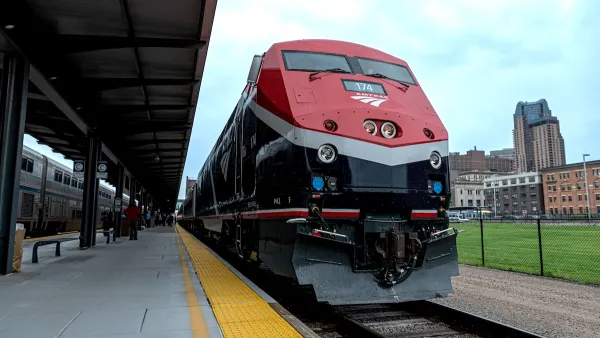From education to housing to health, Chicago's Gary Comer, billionaire founder of Lands' End, invested millions into the struggling South Side neighborhood of Pocket Town in a mission to transform it into a beacon of hope for the community.
Although it was never Gary Comer's intention to see the fruits of his labor in his lifetime, from one venture to the next, he's invested $86 million into projects aiming to improve Pocket Town, the neighborhood where he grew up in Chicago's South Side. Starting with a $68,000 check to fix an electrical problem at "the two-story red brick Paul Revere Elementary School," to investing $12 million in an affordable housing program, to setting up the Comer Science and Education Foundation, Comer made sure “he would take care of [the] neighborhood” long after his passing in 2006.
Elly Fishman writes, “Comer’s hugely ambitious quest contains elements of both the Kalamazoo Promise (a Michigan philanthropist’s pledge to pay for college for all local kids who graduate from public high school) and the Harlem Children’s Zone (an urban renewal program that provides an assortment of “cradle-to-career” services for children and families in New York City’s Harlem neighborhood). The plan he eventually hit upon was to address the interconnected problems facing Pocket Town’s residents: poorly performing schools as well as issues like substandard housing and inadequate health care.”
With all that said, Fishman asks, “What results has that huge investment yielded? And what lessons are there for policymakers, philanthropists, and everyone who cares about the fate of struggling urban neighborhoods?” Comer's initiatives have yielded successes, as well as failures. His health initiatives, for example, led to the vaccination of over 700 children this year. A youth center provides recreational activities, year-round jobs and 6,000 pounds of vegetables annually via a community garden. His housing and education activities have had mixed results.
"On paper," concludes Fishman, "$86 million looks like a helluva lot of money. 'But it’s really hard to change people and communities,” says [Harvard sociologist Robert Sampson]. “We need to be realistic. . . . The social forces that permeate the South Side don’t stop at the Pocket Town boundaries.”
FULL STORY: Can $86 Million Save a Neighborhood?

Maui's Vacation Rental Debate Turns Ugly
Verbal attacks, misinformation campaigns and fistfights plague a high-stakes debate to convert thousands of vacation rentals into long-term housing.

Planetizen Federal Action Tracker
A weekly monitor of how Trump’s orders and actions are impacting planners and planning in America.

In Urban Planning, AI Prompting Could be the New Design Thinking
Creativity has long been key to great urban design. What if we see AI as our new creative partner?

King County Supportive Housing Program Offers Hope for Unhoused Residents
The county is taking a ‘Housing First’ approach that prioritizes getting people into housing, then offering wraparound supportive services.

Researchers Use AI to Get Clearer Picture of US Housing
Analysts are using artificial intelligence to supercharge their research by allowing them to comb through data faster. Though these AI tools can be error prone, they save time and housing researchers are optimistic about the future.

Making Shared Micromobility More Inclusive
Cities and shared mobility system operators can do more to include people with disabilities in planning and operations, per a new report.
Urban Design for Planners 1: Software Tools
This six-course series explores essential urban design concepts using open source software and equips planners with the tools they need to participate fully in the urban design process.
Planning for Universal Design
Learn the tools for implementing Universal Design in planning regulations.
planning NEXT
Appalachian Highlands Housing Partners
Mpact (founded as Rail~Volution)
City of Camden Redevelopment Agency
City of Astoria
City of Portland
City of Laramie





























